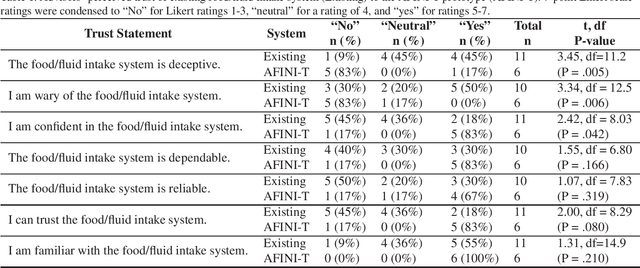Food for thought: Ethical considerations of user trust in computer vision
Paper and Code
May 29, 2019
In computer vision research, especially when novel applications of tools are developed, ethical implications around user perceptions of trust in the underlying technology should be considered and supported. Here, we describe an example of the incorporation of such considerations within the long-term care sector for tracking resident food and fluid intake. We highlight our recent user study conducted to develop a Goldilocks quality horizontal prototype designed to support trust cues in which perceived trust in our horizontal prototype was higher than the existing system in place. We discuss the importance and need for user engagement as part of ongoing computer vision-driven technology development and describe several important factors related to trust that are relevant to developing decision-making tools.
 Add to Chrome
Add to Chrome Add to Firefox
Add to Firefox Add to Edge
Add to Edge